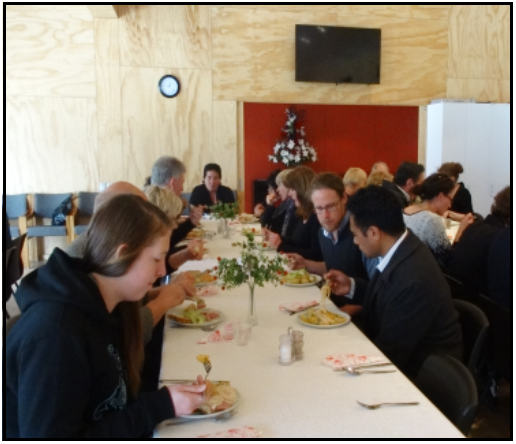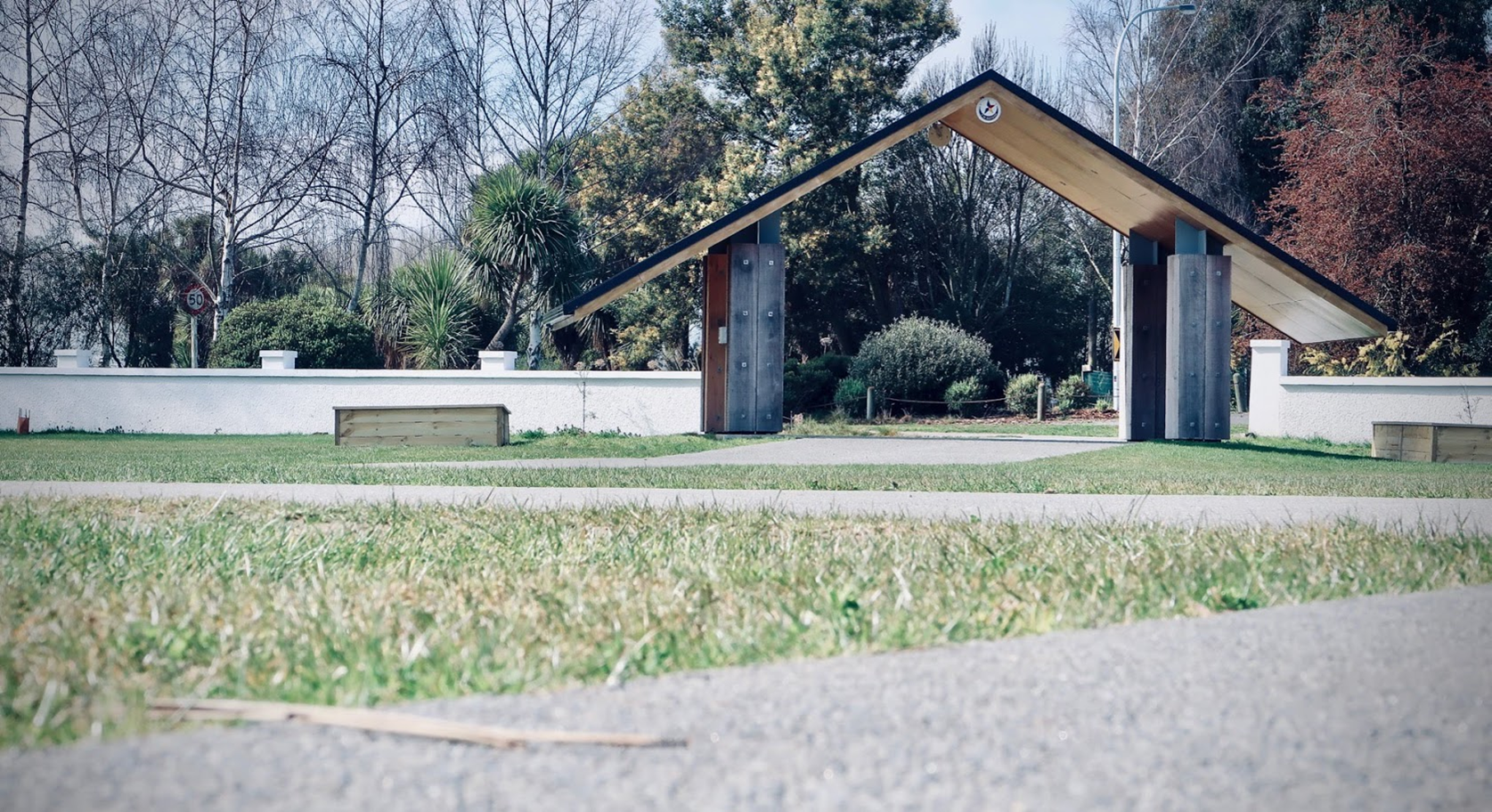
Ngutu
The manuhiri gather at the ngutu (also known as a waharoa). Visitors to a marae who have never been there before are known as waewae tapu (sacred feet). Here, the group will often organise their kaikaranga (callers),
their kaikōrero (speakers) and collect the koha (donation) to be given to the tangata whenua. They also decide on the order of speakers. These things are best prepared at least the day before but can be sorted out at the waharoa if need be.
Host Karanga
In many cases, there will be no wero and the
pōwhiri will begin with the karanga or call. A kaikaranga from the tangata whenua will begin to call and she will be responded by a kaikaranga from the manuhiri.
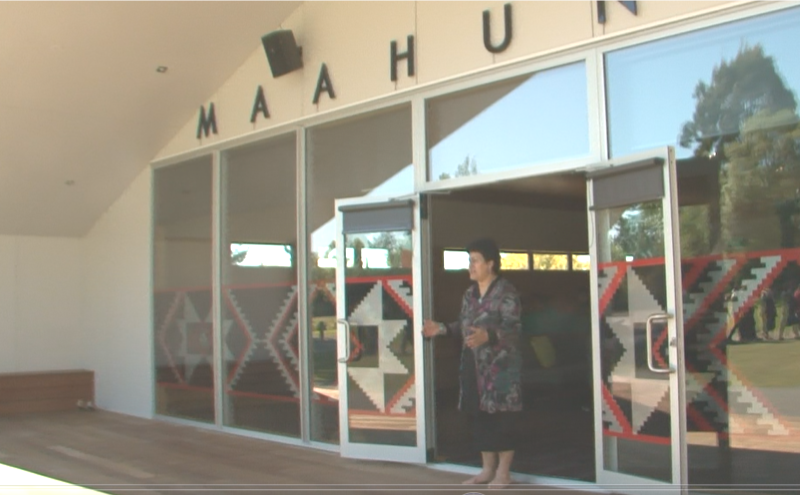
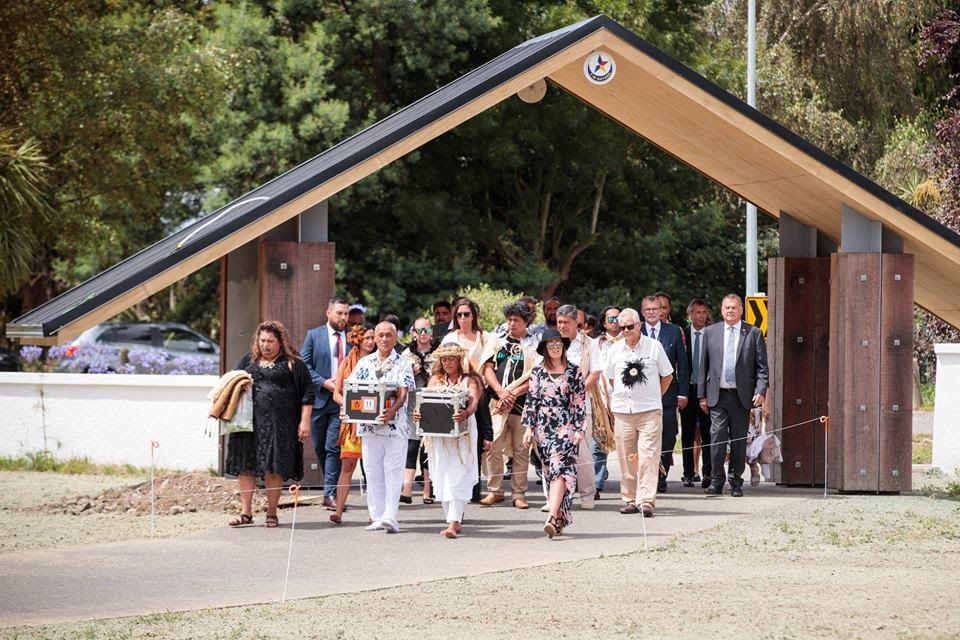
Guest Karanga
The manuhiri will move onto the marae and the calling will continue. When the manuhiri are being welcomed onto the marae, the hosts will sometimes welcome them with a haka pōwhiri (ritual action chant).
Whaikōrero
Whaikōrero (speeches) of welcome and greetings are given by both tangata whenua and manuhiri on the marae.

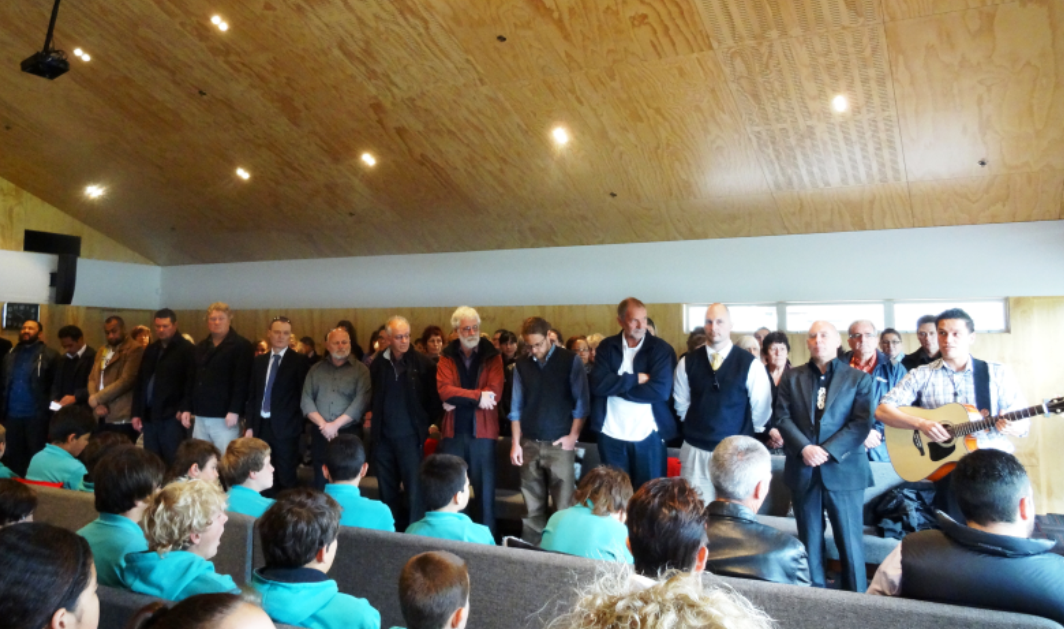
Waiata Tautoko
At the conclusion of each speech the speaker and a number of supporters will sing a waiata (song). Often these are traditional waiata. By singing a waiata, we show our support for what has been said by the speaker. Both tangata whenua and manuhiri sing waiata in support of their kaikōrero.
Koha
The koha is a gift by the manuhiri to the tangata whenua. It is usually placed on the ground by the final speaker from the manuhiri. Once the speaker is seated, someone from the tangata whenua will pick it up. Generally, cheques are the most appropriate form of koha today. Traditionally, you would have taken specialities from your own area as koha.
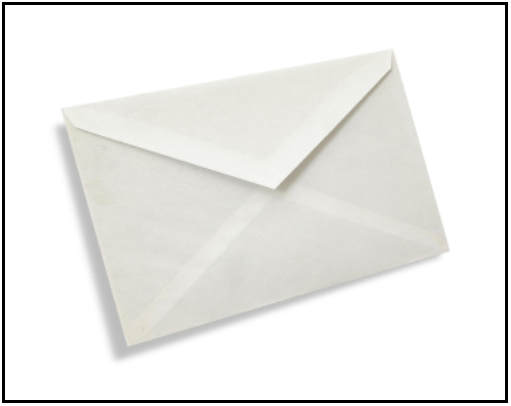
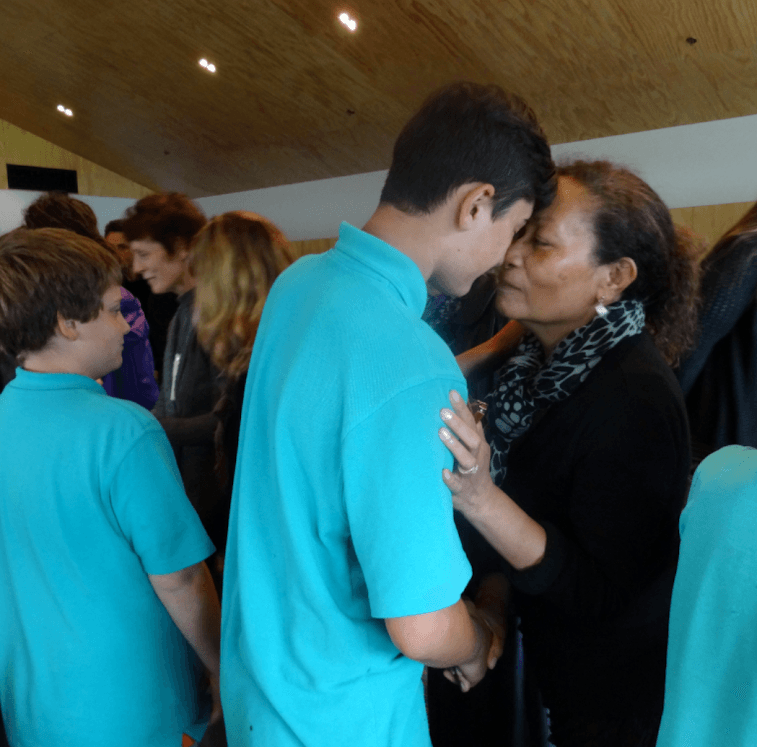
Harirū and Hongi
The manuhiri will be invited to come and hongi (press noses) and harirū (shake hands) with the tangata whenua. Traditionally, whether male or female, participants would hongi. After European settlement, the kiss was introduced.
Kai
The pōwhiri will conclude with kai (food), which lifts the tapu (sacredness) of the pōwhiri.
